Tracks > Artificial Intelligence, NLP, Clouding and MetaheuristicCALL FOR PAPERS Special Session Artificial Intelligence, NLP, Clouding and Metaheuristic
Session chair Rachida FISSOUNE, Aimad EL MOURABIT, Ladjel BELLATERECHE IDS Team-Lab Tangier-Morocco, Lias Poitiers France
The 9th INTIS 2020 Conference (Innovation and New Trends in Information Systems) also includes a special session entitled « Artificial Intelligence & Machine Learning «IDS Laboratory, Lias Lab Poitiers; You are invited to participate in this special session, which focuses on issues related to the Artificial Intelligence, NLP, Clouding and Metaheuristic. Artificial Intelligence (AI) is an area of computer science dedicated to solving cognitive problems typically associated with human intelligence, such as learning, problem solving, and pattern recognition. Artificial intelligence, often abbreviated as « AI », can evoke robotics or a futuristic world, but this discipline goes beyond science fiction automata to apply to today’s actual advanced computing. Similarly, advances in network computing have allowed connectionists to deepen a subdomain called « machine learning ». Machine Learning (AM) and Deep Learning (AP) are both computer science-domains derived from Artificial Intelligence. Machine learning is basically a series of algorithms that can learn and make predictions from stored data, optimize a given utility function in an uncertain situation, extract hidden structures in data, and classify data into concise descriptions. Deep learning is a branch of machine learning that consists of superimposing algorithms to better understand the data. It relies on these layers of nonlinear algorithms to create distributed representations that interact based on a series of factors. However, AI’s cognitive and machine learning capabilities are based on huge volumes of data, which in turn become scalable and instantly accessible in the cloud. The primary goal of this track is to promote research and developmental activities in Meta-heuristic and Optimisation, Natural Language Processing and social networking. Natural Language Processing (NLP) is a subset of artificial intelligence that focuses on system development that allows computers to communicate with people using everyday language. Natural language generation system converts information from computer database into readable human language and vice versa. A metaheuristic is a set of algorithmic concepts that can be used to define heuristic methods applicable to a wide set of different problems. A metaheuristic can be seen as a general purpose heuristic method toward promising regions of the search space containing high-quality solutions. A metaheuristic is a general algorithmic framework which can be applied to different optimization problems with relatively few modifications to make them adapted to a specific problem. The first objective is intended to present works ranking from Artificial Intelligence, Machine learning, Deep learning, NLP and clouding. The second objective is to target researchers interested in all aspects of the application of intelligent techniques in order to present, discuss and share original research works and practical experiences, and provide the latest and most innovative contributions. Papers and contributions are encouraged for any work relating to Artificial Intelligence. Topics of interest may include (but are in no way limited to):
TPC Member :
Paper submission: Authors are invited to submit papers of 6-8 pages including results, figures and references via the conference website: (https://easychair.org/conferences/?conf=intis2020).
Important Dates:
General Information :
|


